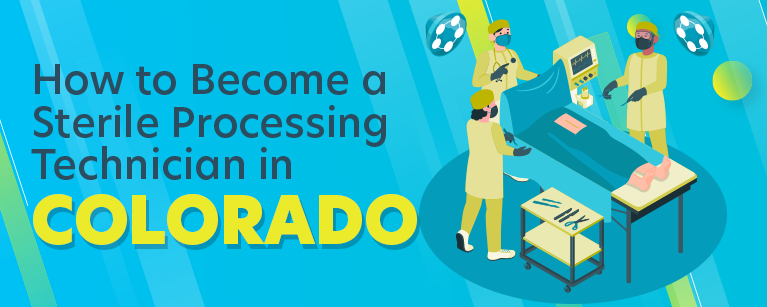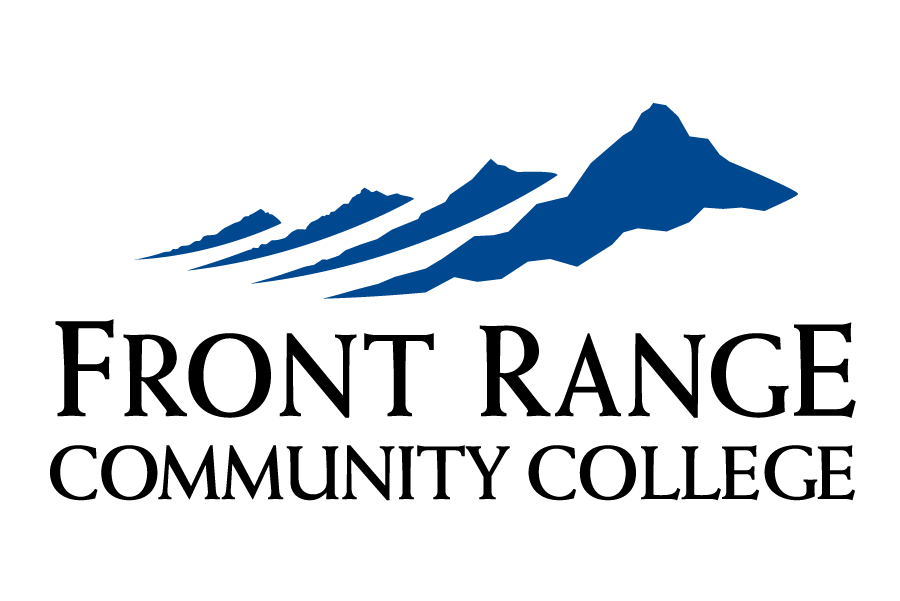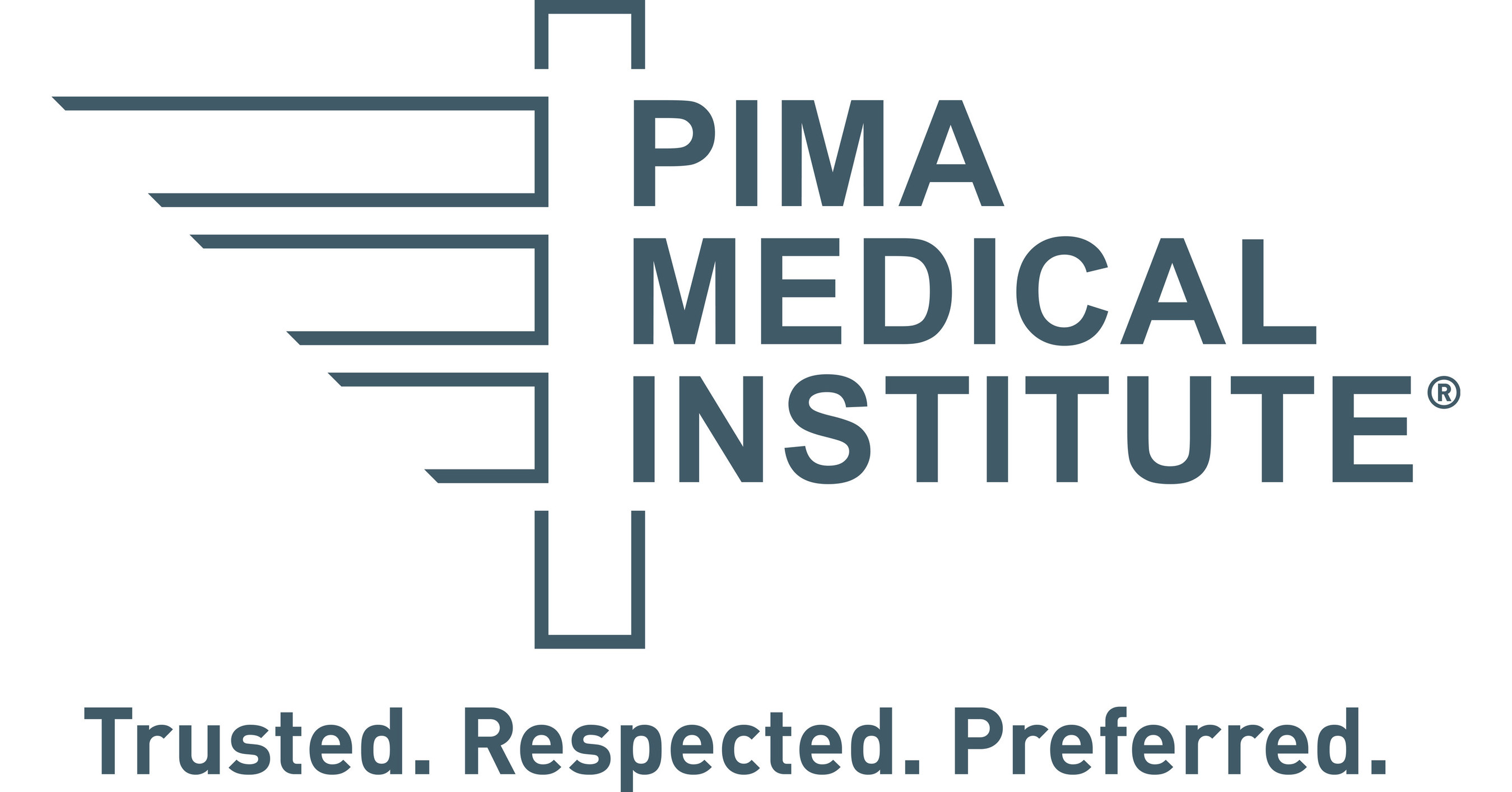
If you’d love to help people in clinical settings, but you don’t have the means or motivation to go to medical school, a career as a Sterile Processing Technician could be just your speed.
If helping surgeons perform medical procedures and decontaminating and organizing medical tools sounds interesting to you, read on to find out how you can become an SPT in the state of Colorado.
Table of Contents
How to Become an SPT
In Colorado, you technically don’t need to attend higher educaton or get certified to become a Sterile Processing Technician.
All you need to apply is your GED or high school diploma — but that doesn’t mean that’s all you need to get hired.
Because the job markets for SPTs is so competitive, getting yourself officially certified via the HSPA is a surefire way to give your application a leg up.
The Healthcare Sterile Processing Association (HSPA)
You can obtain your certification through one of the HSPA’s four levels of certifications:
- Certified Registered Central Service Technician (CRCST) – the base-level certification for SPTs
- Certified Endoscope Reprocessor (CER) – an endoscope-specific certification
- Certified Instrument Specialist (CIS) – an advanced instrument certification
- Certified Healthcare Leader (CHL) – a certification for SPT management
Once you’ve submitted your application and been accepted, you’ll have to study the full breadth of resources provided to you by the HSPA.
These will include online courses, content outlines, reference materials, and the HSPA’s Certification Handbook.
Certification lasts a year in total, and can be renewed via a $50 fee and continuing education courses.
Sterile Processing Schools in Colorado
There are also some schools in the state of Colorado that will help you prepare for your certification tests.
Front Range Community College 
Front Range Community College offers a zero-cost Sterile Processing Technology certificate program.
The only thing you have to do to qualify is apply for financial aid — then, whatever financial aid doesn’t cover, Care Forward Colorado will.
The program lasts just one semester and is 18 credits total.
It will prepare you for the HSPA’s CRCST certification test, and even help get you a paid apprenticeship with either Centura Health or UCHealth — you’ll work there during the week and take your courses during the weekends so you’ll have plenty of hands-on experience by the time you graduate.
Community College of Denver
Community College of Denver also offers a course to prepare you for the HSPA’s CRCST certification test.
Their program is also financial aid eligible, and to be admitted, you must first apply to the college, then attend a mandatory information session.
Once you’re ready to apply, you’ll have to pass a drug screen and background check, then submit placement test scores, a complete medical history including a negative Tuberculosis test, and the following vaccines:
- Measles, mumps, rubella (MMR)
- Varicella
- Tetanus, Diphtheria, Pertussis (Tdap)
- Flu vaccine if you’re applying to the program between the months of October through March
- The initial three-dose of the Hepatitis B vaccine
- The initial two-dose of the COVID-19 vaccine
Pima Medical Institute
Pima Medical Institute’s 9-month certificate program for Sterile Processing is also specifically based on the HSPA’s CRCST certification test.
You’ll also get the chance to participate in clinical externships to help pad your required hours to maintain your certification.
The program is primarily in-person and covers topics like anatomy and physiology, microbiology and infection control, and decontamination techniques.
| School Name | Address |
|---|---|
| Front Range Community College - Boulder County | 2190 Miller Drive Longmont, CO 80501 |
| Front Range Community College - Westminster | 3645 West 112th Avenue Westminster, CO 80031 |
| Front Range Community College - Larimer | 4616 S. Shields Street Fort Collins, CO 80526 |
| Community College of Denver | Cherry Creek Building 1111 W. Colfax Avenue Denver, CO 80204 |
| Pima Medical Institute | 7475 Dakin Street Denver , CO 80221 |
Salary
$45,573 is the average yearly salary for a Sterile Processing Technician in the state of Colorado, but there’s definitely room for growth.
In fact, you could potentially make over $50,000 a year.
Annual Salary Range:| Location | Avg. Annual Salary |
|---|---|
| Denver | $45,844 |
| Colorado Springs | $44,896 |
| Aurora | $45,813 |
| Fort Collins | $44,242 |
| Arvada | $45,844 |
| Pueblo | $42,330 |
| Westminster | $45,844 |
| Boulder | $46,254 |
| Thornton | $45,844 |
| Grand Junction | $46,281 |
Regional Salary in Colorado
| Region | Employed | Avg. Annual Salary | Avg. Hourly Pay | Top 10% Annual Salary | Bottom 10% Annual Salary |
|---|---|---|---|---|---|
| Boulder, CO | 70 | $50,870 | $24.46 | $64,350 | $38,980 |
| Colorado Springs, CO | 150 | $50,550 | $24.3 | $59,260 | $33,130 |
| Denver-Aurora-Lakewood, CO | 600 | $51,050 | $24.54 | $64,950 | $40,460 |
| Fort Collins, CO | 80 | $59,840 | $28.77 | $116,790 | $39,640 |
| Grand Junction, CO | 50 | $41,060 | $19.74 | $51,920 | $31,620 |
| Pueblo, CO | 50 | $47,120 | $22.65 | $63,890 | $34,910 |
* Employment conditions in your area may vary.
Frequently Asked Questions
Do I need to be licensed to work as a Sterile Processing Technician in Colorado?
No, Colorado is not one of the states that requires Sterile Processing Technicians to be licensed.
However, licensing can help your job search in the long run, so it’s highly recommended.
Which Sterile Processing certification test will Colorado schools prepare me for?
The majority of Sterile Processing programs in Colorado are meant to prepare you for the Healthcare Sterile Processing Association’s (HSPA) Certified Registered Central Service Technician (CRCST) test.
This certification is base-level for Sterile Processing Technicians.
Will I make a lot of money as a Sterile Processing Technician in Colorado?
The average yearly salary for a Sterile Processing Technician in the state of Colorado is $45,573, but you could potentially make upwards of $50,000 with the proper experience and certifications.
Sterile Processing Technician Info by State
- Alabama
- Alaska
- Arizona
- Arkansas
- California
- Colorado
- Connecticut
- Delaware
- Florida
- Georgia
- Hawaii
- Idaho
- Illinois
- Indiana
- Iowa
- Kansas
- Kentucky
- Louisiana
- Maine
- Maryland
- Massachusetts
- Michigan
- Minnesota
- Mississippi
- Missouri
- Montana
- Nebraska
- Nevada
- New Hampshire
- New Jersey
- New Mexico
- New York
- North Carolina
- North Dakota
- Ohio
- Oklahoma
- Oregon
- Pennsylvania
- Rhode Island
- South Carolina
- South Dakota
- Tennessee
- Texas
- Utah
- Vermont
- Virginia
- Washington
- West Virginia
- Wisconsin
- Wyoming









